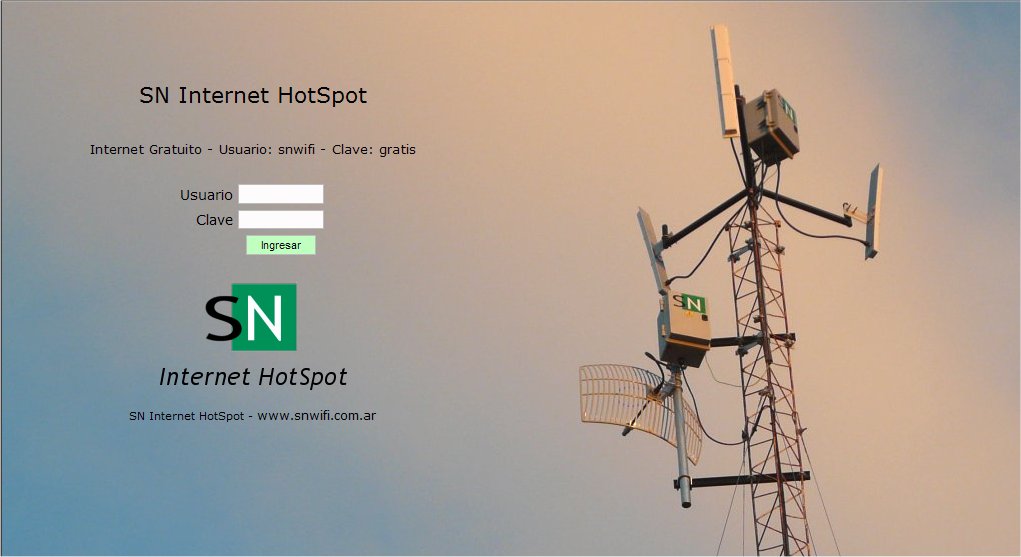
Is there a solution to prevent the "Your Freedom" app from unauthorized access to the internet in my network through a firewall or something like that other than using pppoe server


If so, it is the "first case" in my discussion above - your firewall rules for users who haven't succesfully completed the login quest are not tight enough. How is that done - using Mikrotik's hotspot functionality or using some other solution?The problem is that this application bypasses the page and connects to the Internet without logging in..
NoYou turn 60?
So young!!NoYou turn 60?, the age on my profile is true, is for the RouterOS 7.0.4 (stable) is present on all new distribuited devices.
The problem is that the basic settings of the firewall from Mikrotik are not enough to repel these attacks, so I made some settings by other programmers, but the problem is that they work for a certain period and then fail to repel the attacks, especially when the owners of the application update the applicationIf so, it is the "first case" in my discussion above - your firewall rules for users who haven't succesfully completed the login quest are not tight enough. How is that done - using Mikrotik's hotspot functionality or using some other solution?The problem is that this application bypasses the page and connects to the Internet without logging in..
There are VPNs that connect to DNS ports, VPNs that use ICMP echo/echo response as transport packets, ...
I apologize for taking up some of your timeIf so, it is the "first case" in my discussion above - your firewall rules for users who haven't succesfully completed the login quest are not tight enough. How is that done - using Mikrotik's hotspot functionality or using some other solution?The problem is that this application bypasses the page and connects to the Internet without logging in..
There are VPNs that connect to DNS ports, VPNs that use ICMP echo/echo response as transport packets, ...
/export hide-sensitive file=exportThere are only two strategies that succeed in long-term. Either to start understanding how the firewall actually works, or to hire a consultant.But what do you think of this article?
Would if I did it make my router better and safer?
Well, that is not entirely true. In many cases where you want portal detection to work correctly, you need to enable DNS traffic even to unauthenticated users.Again - in your scenario, there is no need to block "Your Freedom" selectively. Until a client has authentified himself via your login page, you can block everything except the login page. Once he has authentified himself, there is no need to block anything for him, as your interest is only to be able to charge a particular customer account for the traffic volume, and you don't care what kind of traffic it is.
It depends on the overall environment. In public wireless networks - yes, the client types in any web page address, and to get redirected to the hotspot page, they must first be served a DNS response for that page so that their device would ever send a HTTP request that could be redirected to the hostspot page. Which is an approach that already fails as browsers remember that particular web pages use https and skip the initial connections to port 80 for these urls. And in this case, the DNS response must be correct, because the client device caches it, so once it gets past the login phase, it must be able to reach the actual server rather than land at the hotspot page again.In many cases where you want portal detection to work correctly, you need to enable DNS traffic even to unauthenticated users.
No, it is not, because as @pe1chl has pointed out, you need to provide DNS service to clients not yet logged in order that any kind of captive portal worked, be it the Mikrotik one or a 3rd party one.If so, isnt the right response use the MT provided portal??
Hmmm, so someone directly connected to the MT via an access point, has to go outside the router (to the internet) to get back to the router???No, it is not, because as @pe1chl has pointed out, you need to provide DNS service to clients not yet logged in order that any kind of captive portal worked, be it the Mikrotik one or a 3rd party one.If so, isnt the right response use the MT provided portal??
/ip firewall layer7-protocol
add name=prot-dns regexp="^.\?.\?.\?.\?[\\x01\\x02].\?.\?.\?.\?.\?.\?[\\x01-\?][a-z0-9][\\x01-\?a-z]*[\\x02-\\x06]\
[a-z][a-z][a-z]\?[a-z]\?[a-z]\?[a-z]\?[a-z]\?[a-z]\?[a-z]\?[a-z]\?[a-z]\?[a-z]\?[a-z]\?[\\x01-\\x10\\x1C][\\x01-\\x04\\xFF]"
Freedom App uses DNS as a transport. So block all TCP/UDP port 53, besides to 1.1.1.1 and 8.8.8.8
Is there a solution to prevent the "Your Freedom" app from unauthorized access to the internet in my network through a firewall or something like that other than using pppoe server
Is a POSIX regular expression (regex) describing the start of packet containing DNS request.hahah, what does all that code say in plain italian.........
^.?.?.?.?[\x01\x02].?.?.?.?.?.?[\x01-?][a-z0-9][\x01-?a-z]*[\x02-\x06][a-z][a-z][a-z]?[a-z]?[a-z]?[a-z]?[a-z]?[a-z]?[a-z]?[a-z]?[a-z]?[a-z]?[a-z]?[\x01-\x10\x1C][\x01-\x04\xFF]Do they use direct DNS traffic to their own servers? Is it only "the use of port 53" or is it real DNS traffic?Freedom App uses DNS as a transport. So block all TCP/UDP port 53, besides to 1.1.1.1 and 8.8.8.8
can you post the solution that your friend has provided you with ? plz
Is there a solution to prevent the "Your Freedom" app from unauthorized access to the internet in my network through a firewall or something like that other than using pppoe server